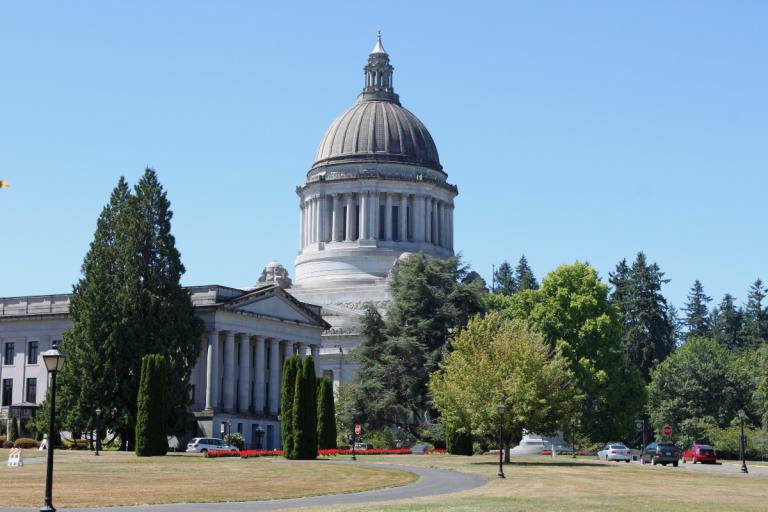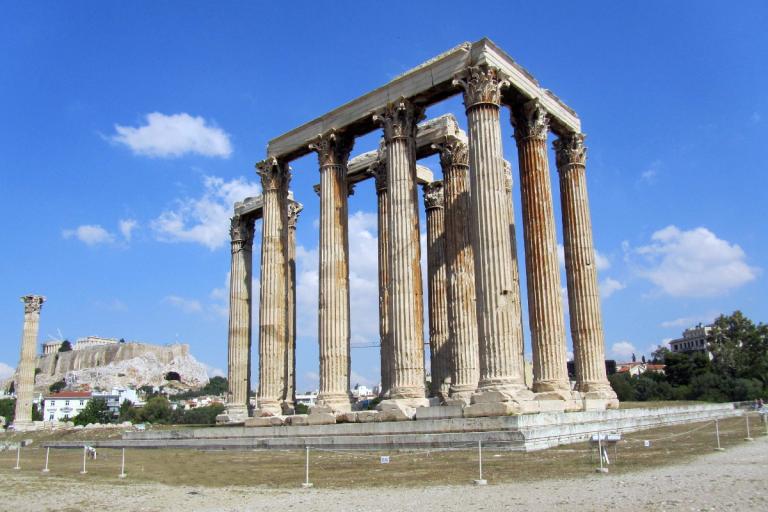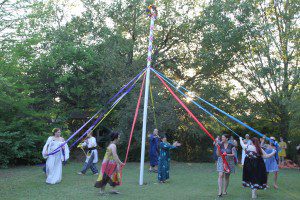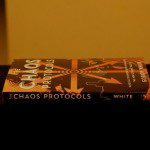It’s an election year (it seems like it’s always an election year!) and the tension between religion and politics is getting stronger. Some say “keep religion out of politics!” while others say “keep politics out of religion.” Some say “I can’t separate my religion from my politics” while others say “my politics flow from my religion.” I fall into the last category.
While these are all valid approaches, it’s helpful to understand how religion and politics intersect.
This is religion. Religion is gathering around a fire and honoring the spirits of the land. Religion is remembering your ancestors. Religion is casting circles, invoking elements, telling the stories of Gods and heroes, and singing and chanting and dancing. Religion is thinking about the nature of the Gods and about the Gods of Nature. Religion is contemplating our virtues and values and how best we can embody them.
Religion is all this and a thousand more things that deal with the concepts and relationships we value most.
This is politics. Politics is campaigning for office. Politics is voting and encouraging others to vote your way. Politics is laws and policies, taxes and budgets. Politics is courts and lawyers and police. Politics is executive action, representative democracy, and backroom deals you never see. Politics is writing your senators, marching in protest, and blocking streets.
Politics is all this and a thousand more things that deal with the nature of power and how we govern ourselves and others.

This is how they intersect in my life. My Pagan, polytheist religion frequently reminds me that while I honor my ancestors, some day I will be an ancestor. I want to live so as to be worth of the honor of those who come after me. I want to leave them a healthy culture and a healthy world. And so I support political actions that protect the environment, preserve wild places, discourage needless consumption, and care for vulnerable people and vulnerable species.
I serve a Goddess of Sovereignty, so I support political actions that respect the rights of every person to live how they want to live without being attacked by bigots, harassed by police, exploited by the rich, or enslaved by employers.
Is picking up trash on the side of the road religion or politics? It’s a little of both – it’s an intersection of the two.
Intersection is good and necessary. My Baptist father used to rant against people who were “so heavenly minded they’re no earthly good.” He had a deep Christian faith, but it wasn’t just about singing hymns and reading the Bible, it was also about feeding the widows and orphans. But I can promise you those hymns and Bible readings were pretty important too.
If you are called to be a monk and renounce the ordinary world, perhaps you can leave the running of the world to the rest of us. Otherwise, figure out how your Paganism or polytheism is going to make a difference once you step away from altar and outside the circle.
Why would you want to separate them? When someone says “keep religion out of politics” they generally mean either “stop using the power of government to promote your religion” or “I disagree with the political expressions that flow from your religion.” The first is a valid complaint, but the second needs to be attacked with political methods, not silenced.
And let’s be honest: many times what they really mean is “politics and religion are contentious enough separately – put them together and I can’t deal with all the strong emotions.”
The bottom line, though, is that religion and politics are two of the strongest influences in our lives. Trying to keep them separate weakens both and makes us less whole, less integrated people.
Internal separation is voluntary, external separation is not. Separating religion and politics internally is entirely up to you. You can keep them in separate boxes, you can intertwine them so tightly you can’t tell the difference, or you can have one flowing from the other.
In the public square, though, an argument from religion carries no weight – particularly if you’re not a Christian. I truly believe Cernunnos wants me to help protect wild places, but if I make that argument in a public debate, I’ll be tuned out (at best). So while I cannot make explicitly Pagan arguments in public debates, I do not have to use atheism as the least common denominator.
Instead, I have to speak to people in ways they can relate to, using ideas, images, and arguments they’re familiar with. This can’t extend to appropriation or patronization, for both ethical and practical reasons – try to tell a Baptist what Jesus wants them to do and you’ll get pretty much the same response as if you said the same thing to a Pagan.
Not distinguishing between religion and politics can take one or the other in directions you may not want to go. Unless you keep them completely separate (something almost none of do, even if we say we do) religion and politics inform and influence each other. If we never examine our religion and our politics separately, we may end up with assumptions that don’t stand well on their own.
When certain radical polytheists (and certain far right polytheists, in bit of irony) argue that when cultures die their Gods die with them, they make assumptions about the Gods that I don’t share – namely, that the Gods are tied to the physical lives of the Earth and to various humans. No. The Gods are immortal, or very nearly so. Plutarch was wrong: the great God Pan is very much alive.

Likewise, some conservative polytheists use the Gods’ superiority to humans to argue for a hierarchical social structure. The fact that I willingly defer to the Gods in most matters because of Their greater wisdom, experience, and virtue does not mean I will automatically defer to another human, whether they are King, President, or CEO. I accept their theology but not the politics that flow from it.
History has shown time and time again that benevolent dictators are few and very far between. I’ll take my chances with democracy.
How tightly do you want to draw your circles? If your politics or your religion intersect with mine, I want to work with you. And I’ll work with you where our beliefs and practices intersect, even if we have significant differences in other areas. Now, I have certain ethical limits – I won’t work with Daesh or the Westboro Baptist Church on anything for any reason. But I’m perfectly happy to work with Catholics to oppose the death penalty, even though we disagree on tons of religions matters, and even though we disagree on marriage equality.
I want to draw my political circles as widely as I can. I want everyone who supports freedom, acceptance, care for the natural world, and using the common wealth to support the common good in my political tent, whether they pray to Lugh or Jesus or no one at all. I don’t care why they do and support the right things, so long as they do and support the right things.
 I want to draw my public religious circles widely. There is no political test to dance the Maypole. No one will check your carbon footprint before allowing you to pour an offering to Brighid. Come, honor the Gods however you conceive of them, and enjoy our hospitality.
I want to draw my public religious circles widely. There is no political test to dance the Maypole. No one will check your carbon footprint before allowing you to pour an offering to Brighid. Come, honor the Gods however you conceive of them, and enjoy our hospitality.
I want to draw my private religious circles tightly. And I want to draw them around religious centers. If I’m participating in an ecstatic devotional ritual, I want to know that everyone there sees the Gods as real beings, or at least is open to that possibility. I don’t want to be worrying about an argument over beings vs. archetypes. I want to feel free to make myself open and vulnerable to the presence of the Gods.
How can you change the world? Whether you put your religion first, your politics first, or if you insist you can’t separate them, most of us agree that our world is in jeopardy. We may disagree on the causes and we certainly disagree on the solutions, but we mostly see that Things Aren’t Right.
We need many approaches. Some will be political. Some will be religious. Some will be a little of both.
Many will fail, whether for lack of resources or intense opposition or simply because it wasn’t a very good approach to begin with. That’s why we need many approaches to changing the world – the more different ways we try, the better chance we have that one of them will work.
So do what you do best. Do what you’re called to do. If that’s being a political radical, then be a political radical. If that’s being a mystic who spends most of your time in the otherworld, then be a mystic. If that’s being a priest who serves the Gods and the people, then be a priest.
This is what I do. I’m a Druid and a priest. I participate in the political process, but my primary concern is religious. My politics flow from my religion, but they are subordinate to it. And my religion requires that I work and worship with those who share my commitment to the Gods and Their virtues and values, even if their politics are vastly different from mine.
Where do your religion and your politics intersect?
What do you do best?
How can you change the world?
















